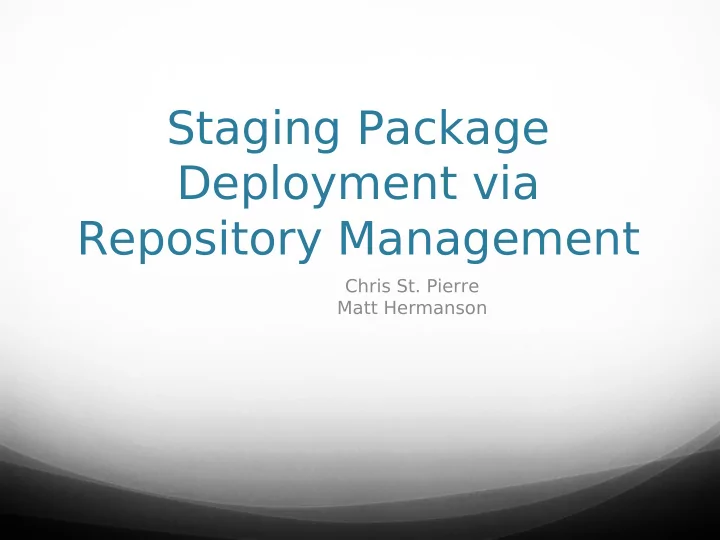

Staging Package Deployment via Repository Management Chris St. Pierre Matt Hermanson
Background (Mostly) homogeneous environment Organizational structure Bcfg2
Our Approach Control what packages are available in the repository Define classes of repositories Upstream/Stable/Unstable Infra/HPSS/clusters Clients are always up-to-date with repository Centralized management
Other solutions Yum excludes Spacewalk Bcfg2 version specification Yum versionlock
A solution: Pulp Part of Red Hat’s CloudForms Repos can be “cloned” efficiently Sync mediated by filters Manual manipulation
Workflow Tiered repositories Upstream – daily sync from upstream Unstable – filtered sync from upstream Stable – filtered sync from unstable Custom repositories branched from upstream Package promotion separated by time and/or manual intervention
Workflow How do we implement filters Whitelist and blacklist packages Manual package promotion and removal
Workflow Patches are promoted to stable after at least a week in unstable Security patches receive immediate attention Choosing Impactful packages Kernel and kernel-space Impacts customers Lustre and Infiniband related
Results Improved automation results in less overhead Increased compartmentalization
Updates
Vulnerabilities
What's next? Sponge Web frontend for pulp Django More intuitive repository management http://github.com/stpierre/sponge Apply an age attribute to individual packages Other packaging formats
Recommend
More recommend